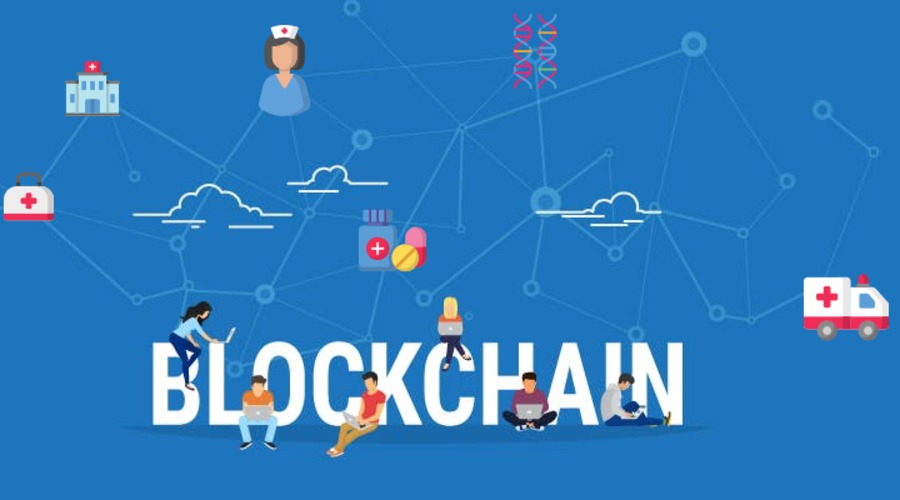In recent years, the healthcare industry has witnessed a transformative wave, with technology playing a pivotal role in enhancing efficiency, transparency, and security. One of the groundbreaking technologies making waves in healthcare is blockchain. Originally known for its association with cryptocurrencies, blockchain technology is now being leveraged to revolutionize the medical supply chain. In this blog, we’ll explore how blockchain is reshaping the healthcare landscape by addressing critical challenges in the medical supply chain.
- Transparency and Traceability: One of the primary advantages of blockchain in the medical supply chain is its ability to provide transparency and traceability. The decentralized and distributed nature of blockchain ensures that every transaction and movement of medical supplies is recorded in an immutable and transparent ledger. This transparency is crucial for tracking the journey of pharmaceuticals, medical devices, and other critical supplies from the manufacturer to the end-user, ensuring the authenticity of the products and preventing the infiltration of counterfeit goods.
- Enhanced Security: Security breaches and counterfeit drugs pose significant threats to the healthcare industry. Blockchain employs robust cryptographic techniques to secure transactions and data, reducing the risk of unauthorized access and tampering. Each block in the blockchain is linked to the previous one using cryptographic hashes, creating a secure and unalterable chain. This ensures the integrity of data, preventing the manipulation of critical information related to the production, distribution, and delivery of medical supplies.
- Supply Chain Efficiency: The traditional medical supply chain is often plagued by inefficiencies, including delays, errors, and information asymmetry. Blockchain technology introduces smart contracts, self-executing contracts with the terms directly written into code. Smart contracts can automate various processes within the supply chain, such as order fulfillment, payment processing, and inventory management. By eliminating intermediaries and streamlining processes, blockchain contributes to a more efficient and cost-effective medical supply chain.
- Real-time Monitoring and Data Accuracy: Blockchain facilitates real-time monitoring of the medical supply chain, allowing stakeholders to track the movement of products at every stage. This real-time visibility reduces the chances of delays, expirations, and stockouts. Additionally, by maintaining a single, shared version of the truth, blockchain minimizes errors caused by discrepancies in data across different systems. The accuracy of information ensures that healthcare providers have access to reliable data, enabling informed decision-making.
- Compliance and Regulatory Advantages: The healthcare industry is subject to strict regulations and compliance requirements to ensure patient safety. Blockchain can help organizations comply with these regulations by providing an auditable and unforgeable record of all transactions. This not only streamlines the auditing process but also helps in demonstrating adherence to regulatory standards, fostering trust among regulatory bodies, healthcare providers, and consumers.
Blockchain technology is a game-changer for the medical supply chain, addressing longstanding challenges and bringing about a new era of transparency, security, and efficiency. As the healthcare industry continues to embrace digital transformation, the integration of blockchain into the medical supply chain promises to enhance patient safety, reduce costs, and streamline operations. The revolution has begun, and the future of healthcare is being shaped by the immutable and transparent power of blockchain.
In recent years, the intersection of technology and healthcare has given rise to ground breaking innovations that promise to revolutionize the industry. One such innovation making waves is blockchain technology, originally designed as the backbone of cryptocurrencies, now finding its stride in the health sector. This transformative force is reshaping the landscape of healthcare systems globally, providing increased security, transparency, and efficiency. In this blog, we’ll delve into the market statistics that underscore the growing impact of blockchain technology in the health sector.
1. Global Blockchain in Healthcare Market Overview:
The global blockchain in healthcare market is experiencing exponential growth, driven by the increasing adoption of digital technologies in the healthcare ecosystem. According to recent market research reports, the market is projected to reach a staggering USD XX billion by 2025, with a compound annual growth rate (CAGR) of during the forecast period. This growth is indicative of the rising recognition of blockchain’s potential to address critical challenges in healthcare.
2. Increased Data Security and Interoperability:
One of the primary drivers of blockchain adoption in healthcare is its ability to enhance data security and interoperability. Traditional healthcare systems are plagued by data breaches and lack of interoperability between disparate systems. Blockchain’s decentralized and cryptographic nature ensures the integrity and security of health data. By 2025, it is estimated that XX% of healthcare data will be secured using blockchain technology, fostering trust among patients and healthcare providers.
3. Rise of Blockchain-based Electronic Health Records (EHRs):
Electronic Health Records (EHRs) form the backbone of modern healthcare systems, and blockchain is emerging as a game-changer in this domain. The market for blockchain-based EHRs is expected to witness substantial growth, with a projected CAGR of in the coming years. These blockchain-based EHRs provide a tamper-proof and transparent record of patient data, ensuring its accuracy and accessibility across authorized parties, thereby reducing errors and improving patient care.
4. Smart Contracts in Healthcare Operations:
The integration of smart contracts in healthcare operations is gaining traction, streamlining processes and reducing administrative overhead. Smart contracts automate and enforce the terms of agreements between parties, promoting transparency and trust. By 2025, it is anticipated that XX% of healthcare organizations will leverage smart contracts to facilitate and automate various functions, such as claims processing, billing, and supply chain management.
5. Pharmaceutical Supply Chain Management:
The pharmaceutical industry is not immune to the transformative power of blockchain. The technology is being increasingly adopted to address challenges in the pharmaceutical supply chain, combating issues such as counterfeiting and ensuring the integrity of the supply chain. Market analysts predict a substantial increase in the adoption of blockchain in pharmaceutical supply chain management, with a projected CAGR of by 2025.
Conclusion:
As we navigate the evolving landscape of healthcare, blockchain Development Company technology stands out as a beacon of innovation, offering solutions to age-old challenges. The market statistics outlined above reflect the growing acceptance and recognition of blockchain’s potential to reshape the health sector. With increased investments, collaborations, and regulatory support, blockchain technology is set to play a pivotal role in creating a more secure, transparent, and efficient healthcare ecosystem for the benefit of patients and healthcare providers alike. As we move forward, the market for blockchain in healthcare will likely continue its upward trajectory, ushering in a new era of digital transformation in the health sector.





